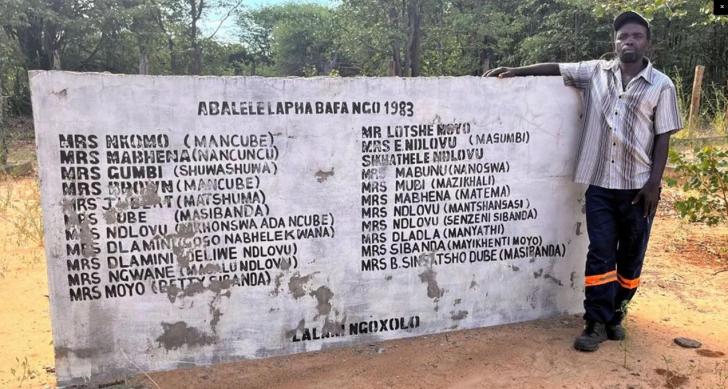News / National
Chiefs demand hefty pay-outs for Gukurahundi
24 Nov 2025 at 05:54hrs |
0 Views

President Emmerson Mnangagwa's Gukurahundi community outreach programme, launched on July 14, 2024, at the Bulawayo State House, has reportedly been stalled due to disputes over allowances and resources for traditional leaders overseeing the exercise. The initiative, intended to provide a platform for survivors and victims of the Gukurahundi massacres, was first proposed by the government in 2019.
The programme is managed by a 14-member panel of traditional leaders tasked with collecting testimonies from affected communities in Matabeleland. However, sources indicate that some chiefs have made excessive demands, including allowances of US$4 000 per month, Starlink internet kits, hundreds of litres of fuel coupons, and the use of personal service vehicles or the hiring of all-terrain vehicles.
"Currently, there is a dispute over the allowances the chiefs are demanding," a source said. "They wanted US$4 000 a month, but the steering committee reduced this to US$1 100. Fuel coupons were also turned down, and an arrangement was made for them to refuel at selected service stations. Starlink kits were also requested but not granted."
Further complications have arisen from conflicts of interest, as many chiefs have appointed relatives, friends, or close associates to the 14-member panel. While chiefs were paid three months' advance allowances totaling at least US$3 300, disputes over payments have resurfaced, reportedly leaving the government one month in arrears. Some chiefs have allegedly delayed public hearings citing the allowance disagreement.
Despite these reports, National Council of Chiefs President Chief Mtshane Khumalo told The Standard that he was unaware of allowance disputes and said the programme was progressing smoothly. "When we started, people were skeptical and did not attend the hearings. On average, we are now getting about 60 to 75 participants per ward during a single hearing. We aim to hold three meetings per week in each ward to reach victims, most of whom are elderly," he said.
The outreach programme has drawn criticism over transparency and inclusivity. Hearings are being conducted in selected parts of Matabeleland, while Midlands — which also suffered significant casualties during the massacres — has been excluded. Observers and petitioners have urged Mnangagwa to reconsider the structure of the chiefs-led hearings, arguing that the process is flawed and may not constitute a genuine attempt to confront Zimbabwe's dark past.
Gukurahundi, conducted in the 1980s by the North Korean-trained Fifth Brigade, is estimated to have claimed 20 000 civilian lives across Matabeleland North, Matabeleland South, and parts of Midlands. Researchers have classified the atrocities as crimes against humanity, and in some frameworks, genocide.
Justice Minister Ziyambi Ziyambi could not be reached for comment at the time of reporting. The government has yet to clarify how it plans to resolve disputes over allowances and ensure the outreach programme proceeds without further delays.
The programme is managed by a 14-member panel of traditional leaders tasked with collecting testimonies from affected communities in Matabeleland. However, sources indicate that some chiefs have made excessive demands, including allowances of US$4 000 per month, Starlink internet kits, hundreds of litres of fuel coupons, and the use of personal service vehicles or the hiring of all-terrain vehicles.
"Currently, there is a dispute over the allowances the chiefs are demanding," a source said. "They wanted US$4 000 a month, but the steering committee reduced this to US$1 100. Fuel coupons were also turned down, and an arrangement was made for them to refuel at selected service stations. Starlink kits were also requested but not granted."
Further complications have arisen from conflicts of interest, as many chiefs have appointed relatives, friends, or close associates to the 14-member panel. While chiefs were paid three months' advance allowances totaling at least US$3 300, disputes over payments have resurfaced, reportedly leaving the government one month in arrears. Some chiefs have allegedly delayed public hearings citing the allowance disagreement.
Despite these reports, National Council of Chiefs President Chief Mtshane Khumalo told The Standard that he was unaware of allowance disputes and said the programme was progressing smoothly. "When we started, people were skeptical and did not attend the hearings. On average, we are now getting about 60 to 75 participants per ward during a single hearing. We aim to hold three meetings per week in each ward to reach victims, most of whom are elderly," he said.
The outreach programme has drawn criticism over transparency and inclusivity. Hearings are being conducted in selected parts of Matabeleland, while Midlands — which also suffered significant casualties during the massacres — has been excluded. Observers and petitioners have urged Mnangagwa to reconsider the structure of the chiefs-led hearings, arguing that the process is flawed and may not constitute a genuine attempt to confront Zimbabwe's dark past.
Gukurahundi, conducted in the 1980s by the North Korean-trained Fifth Brigade, is estimated to have claimed 20 000 civilian lives across Matabeleland North, Matabeleland South, and parts of Midlands. Researchers have classified the atrocities as crimes against humanity, and in some frameworks, genocide.
Justice Minister Ziyambi Ziyambi could not be reached for comment at the time of reporting. The government has yet to clarify how it plans to resolve disputes over allowances and ensure the outreach programme proceeds without further delays.
Source - The Standard
Join the discussion
Loading comments…



























